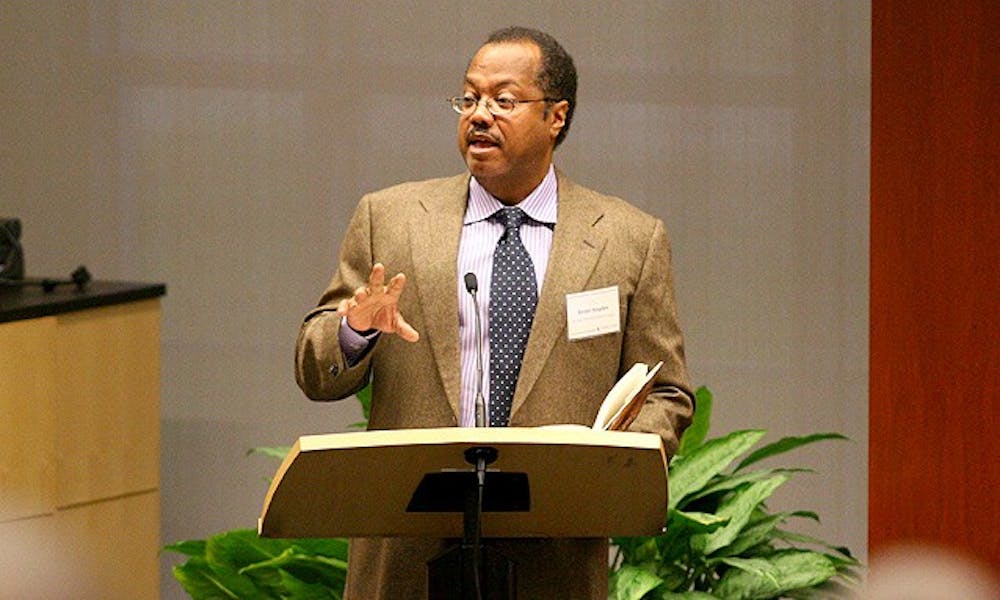In the memory of former Duke professor and acclaimed historian John Hope Franklin, experts on race from across the country have gathered on Duke’s campus for a three-day event titled “From Slavery to Freedom to the White House: Race in 21st Century America.”
During his time at the University and as James B. Duke professor emeritus of history, Franklin was a long-time champion for civil rights as an academic. He died March 25, 2009 at the age of 94. The conference, hosted by the Duke Law School, seeks to honor his legacy even in its title, which is a play on Franklin’s most famous work, “From Slavery to Freedom, A History of African Americans.”
“The people who are speaking are quite remarkable people. It is really an opportunity [to attend],” said Luis Fuentes-Rohwer, law professor at the Indiana University Maurer School of Law. “I’ve seen conferences talking about race, but this one... the organizers were able to attract a lot of people.”
Among today’s conference events are a discussion moderated by President Richard Brodhead, titled “Race as Institution and Metaphor: A View from the Humanities.” The entire conference concludes Saturday and is free to the public, but registration through the Duke Law Web site is required.
As part of today’s events, Brent Staples, a New York Times Editorial Board member, spoke about Franklin’s legacy. He called Franklin both “fiercely patriotic” and “fiercely critical of the nation” and detailed the discrimination the scholar faced throughout his lifetime despite his outstanding academic credentials.
“John Hope Franklin’s mission was this: There was no history of the United States without the Negro people,” Staples said in his speech.
Today’s events included discussions called the “Stories, Narratives, and Citizenship: Race with History” and “The Construction of Racial Discrimination.” In the latter, the panelists spoke about how racial discrimination still exists in the nation today.
Panelist Angela Onwuachi-Willig, Charles M. and Marion J. Kierscht Scholar and a professor of law at the University of Iowa, said that after President Barack Obama was elected, a new form of racial discrimination emerged in the country. She noted that the election of a black president can be used to falsely claim that America is a post-racial society.
“Here was proof that the playing field had been evened,” Onwuachi-Willig said of doubts that racism still exists.
Citing examples such as the popular movie “Guess Who,” the panel discussed the perception that racial discrimination is being turned on its head with whites becoming the new victims of racial prejudice.
The panel noted that some individuals who perpetuate discrimination are unaware of the effects of their actions.
“Most people who discriminate are not conscious that they are doing it,” Onwuachi-Willig said.
Get The Chronicle straight to your inbox
Sign up for our weekly newsletter. Cancel at any time.

